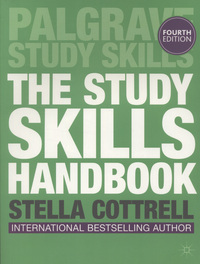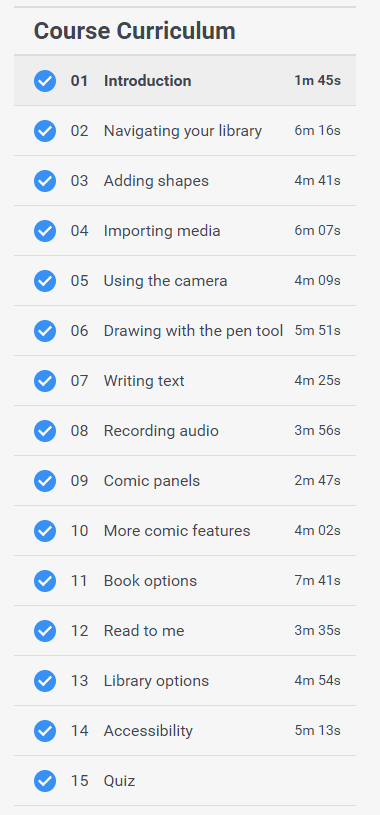We shared this reading list with you in July, here is a reminder of it.
August 15, 2022
by Jean
0 comments

August 15, 2022
by Jean
0 comments
We shared this reading list with you in July, here is a reminder of it.
August 8, 2022
by Jean
0 comments
Throughout the FDLT and BALT courses you will often need to read and refer to curriculum documents.
These are some of the key documents:
For Early Years:
This is a link to the page where you can access and download the Statutory framework for the early years.
This is the reference that you will use in assignments:
DfE (2021) Statutory framework for the early years. GOV.UK [online] Available from: https://assets.publishing.service.gov.uk/government/uploads/system/uploads/attachment_data/file/596629/EYFS_STATUTORY_FRAMEWORK_2017.pdf [Accessed 12/07/21].
For primary and secondary:
This is the link to the full national curriculum for all key stages and subjects. It is this document that you should use in assignments.
This is the reference that you will use in assignments:
DfE (2014) National Curriculum in England: framework for key stages 1 to 4. GOV.UK [online[ Available from: https://assets.publishing.service.gov.uk/government/uploads/system/uploads/attachment_data/file/381344/Master_final_national_curriculum_28_Nov.pdf [Accessed: 15/07/2020].
It would be useful for you to save the relevant links, download the documents and read through the pages relevant to your age group.
You should also all read pages 1 to 13 of the national curriculum as this underlies the subject programmes of study.
August 2, 2022
by Jean
0 comments
As you begin university you will need to consider where you are going to study at home and begin to prepare this space so that you are ready to use it from the beginning of September.
There are some hints and tips here that you might find useful.
When you begin in year 1 you will be studying these modules:
PDT1065 Pupil Engagement and Assessment
PDT1066 Introduction to SEND, Diversity and Inclusion
PDT1068 English and Mathematics: Core Subjects
PDT1076 Using Digital Technology to Inspire and Support Learning
PDT1077 Work Based Reflection*
PDT1078 The Practitioner’s Role*
* (If you have chosen to take exemption from the work-based modules because you have HLTA you won’t study these modules)
If you are coming directly into year 2 you will be studying these modules:
PDT2016 Using experiences outside school to inspire and support learning
PDT2017 Planning and professional development
PDT2018 SEND, diversity and inclusion: school-based project
PDT2019 Work-based practice: reflective practices
PDT2020 English and mathematics: cross curricular approaches
If you are starting in the BALT year you will be studying these modules:
PDT3007 Personal perspectives in professional practice
PDT3008 Interdisciplinary perspectives in professional practice
PDT3009 Education beyond boundaries
PDT3010 Culture and identity in education
PDT4002 Research methods and dissertation
July 28, 2022
by Jean
0 comments
Here are some links to resources that you might find interesting. You can explore the links on this Padlet but you cannot post on to it yourself.
July 25, 2022
by Jean
0 comments
 As students about to start studying in Higher Education it is useful for you to know about people who work in the field of education. A useful way of beginning this is to listen to radio programmes such as The Educators. This is available on Radio 4 at here.
As students about to start studying in Higher Education it is useful for you to know about people who work in the field of education. A useful way of beginning this is to listen to radio programmes such as The Educators. This is available on Radio 4 at here.
You might listen to the episode about mathematics educator, Jo Boaler and then try the episode about educational researcher, John Hattie and then just browse to listen to what takes your interest.
As you listen consider how what you are hearing relates to your own educational experience both as a pupil and as a student, and your professional experience in schools.
July 21, 2022
by Jean
0 comments
 As you begin to study in Higher Education you’ll find that there are lots of sources of support. The Skills Hub at the University of Northampton is one of these. When you have enrolled as a student you will be able to access all of the resources but until then you can access the content under Academic Skills, How to Study and How to Research. You can find the Skills Hub here.
As you begin to study in Higher Education you’ll find that there are lots of sources of support. The Skills Hub at the University of Northampton is one of these. When you have enrolled as a student you will be able to access all of the resources but until then you can access the content under Academic Skills, How to Study and How to Research. You can find the Skills Hub here.
 You might also wish to buy a study skills book such as The Study Skills Handbook by Stella Cottrell. This is a useful book in your first year, but also has useful sections to use in the second and third years. There is a supporting website here. Having said this there are many useful study skills books so you could have a browse and choose one that you like the look of.
You might also wish to buy a study skills book such as The Study Skills Handbook by Stella Cottrell. This is a useful book in your first year, but also has useful sections to use in the second and third years. There is a supporting website here. Having said this there are many useful study skills books so you could have a browse and choose one that you like the look of.
As you begin in the course you will find plenty of study skills support available to you through your tutors in taught sessions and resources and people available to you through the university face to face and online.
July 18, 2022
by Jean
0 comments
You might wish to follow and interact with your course tutors and fellow students on social media channels:
Twitter: @fdltuon
Instagram: @fdltuon
Pinterest: FD L and T
YouTube: FD L and T
Facebook: https://www.facebook.com/fdltbaltuon/
July 14, 2022
by Jean
0 comments
This is the Padlet that we used in the FDLT Introduction session on Wednesday July 13th.
July 14, 2022
by Jean
0 comments
The BALT groups and the FDLT groups start in week beginning 12th September, on your venue day.
FDLT Year 1
Tuesday: Waterside Campus, Northampton
Thurssday: Devonshire Place, Leicester (Waterside for Day 1 only)
FDLT Year 2
Monday: Waterside Campus, Northampton
Wednesday: Devonshire Place, Leicester
BALT
Tuesday: Devonshire Place, Leicester
Thursday: Waterside Campus Northampton.
Venue details:
LEICESTER
Devonshire Place, 78 London Road, LEICESTER, LE2 0RA
Parking: the car park is accessed via Prebend Street and is free for you to use on your student day.
NORTHAMPTON
Waterside Campus, University Drive, NORTHAMPTON, NN15PH.
Information about travel and transport for Waterside Campus is available here.
July 13, 2022
by Jean
0 comments
 BookCreator is a fantastic tool for creating digital learning resources in education. It has a great range of accessibility tools that make it useful for all ages and abilities.
BookCreator is a fantastic tool for creating digital learning resources in education. It has a great range of accessibility tools that make it useful for all ages and abilities.
 If you are new to BookCreator a good way to learn about it is to complete the Level 1 certification. You can access it here.
If you are new to BookCreator a good way to learn about it is to complete the Level 1 certification. You can access it here.
It provides a clear and user friendly overview and is the perfect way to get started.
If you are a current student you will have been using BookCreator on the FDLT course- I saw some fabulous examples in PDT1076 in autumn 2021, 2020 and 2019.
If you continued to use BookCreator you could apply to become a BookCreator Ambassador. Applications open on July 18th here.
As university students and people supporting learning in schools you should create a teacher account not a student account. In BookCreator terms students are pupils.